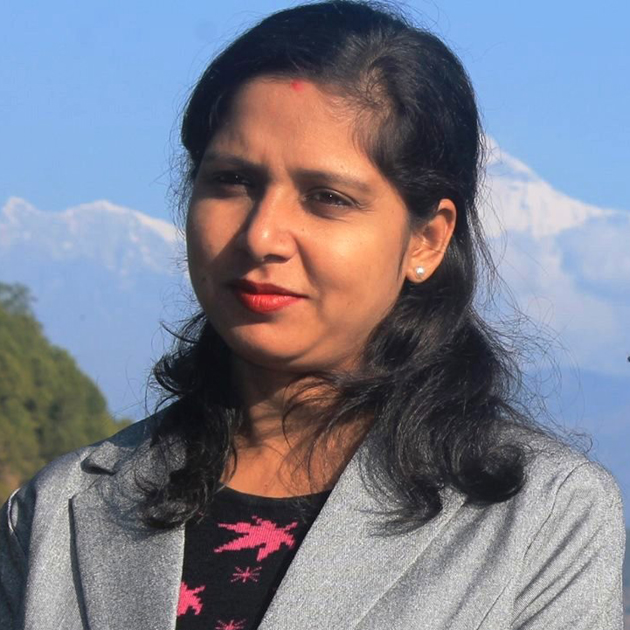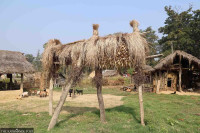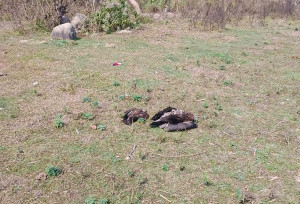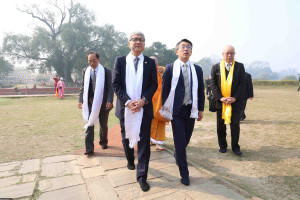Lumbini Province
In Butwal, settlements have been built over mounds of garbage thrown in the banks of Tinau
The banks of Tinau have today turned into a haven for those who can’t afford to rent a flat in the city.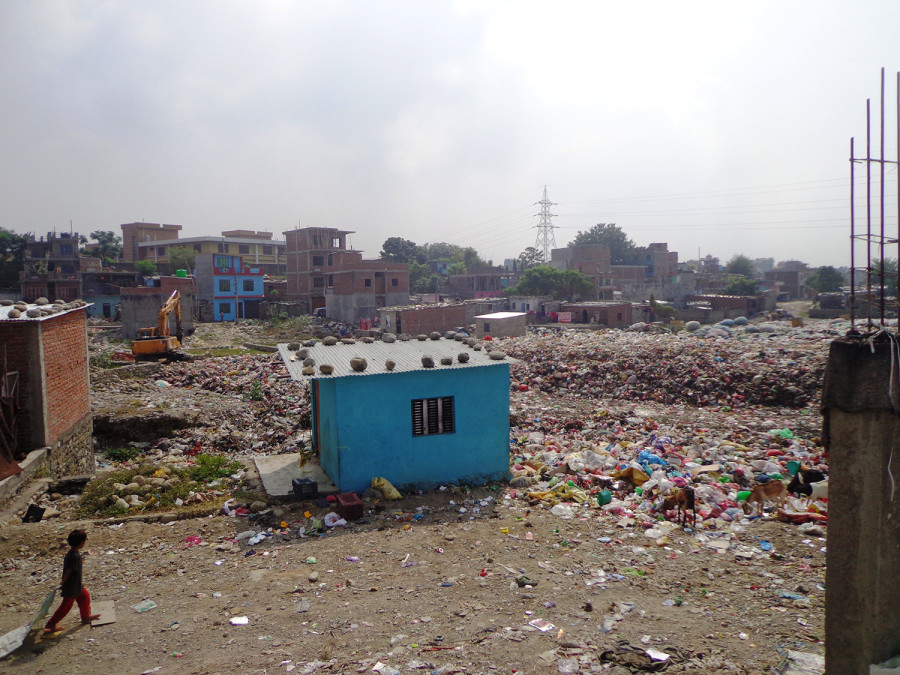
Amrita Anmol
For years, the Butwal Sub-metropolis has been disposing of its garbage on the banks of Tinau River for lack of a dumping site. Once a certain area of the bank is filled with garbage, it gets encroached upon, and there sprouts a settlement.
Hattisudh, in Ward No. 11 of Butwal Sub-metropolis, for instance, was a deserted area just about seven years ago, with its ground inundated by floods over the years. Then in 2015, the sub-metropolis started dumping its garbage in the area. The site is now filled with garbage with a settlement built over it.
“Wherever there’s a space covered with garbage and mud, there emerges a settlement,” said Suresh Gautam, an official with the sub-metropolis’ garbage management unit. “Currently, there’s a dearth of space to throw garbage in, as all the open spaces now have a settlement.” Five years ago, there were 20 households in Hattisudh; today, there are 135.
“We didn’t have anywhere to go, so we set up our homes here,” said Shakuntala Nepali, a local. “We used to collect recyclable wastes here, and then we made our homes.”
Nepali’s family, who hails from Pyuthan, came to Butwal in 1997. “At first the entire area would stink,” she said. “But now we are accustomed to it.”
The banks of Tinau have today turned into a haven for those who can’t afford to rent a flat in the city.
“Since my husband is the sole breadwinner in the family, we struggle to make a living,” said Tara Sunar, another Hattisudh local who has a family of five. “The burden has eased a bit since we don’t have to pay rent these days.”
Today, the locals of Hattisudh and Pavitranagar, another settlement of 250 households established over mounds of garbage, argue the sub-metropolis should stop disposing of its waste in their burgeoning settlement. The locals of Pavitranagar have repeatedly protested against the sub-metropolis for throwing garbage in the area.
“Many settlements in Butwal were established on the banks of the river,” said Ramsingh Thapa, a Pavitranagar local. “So the sub-metropolis should refrain from throwing garbage in the settlement area.”
Meanwhile, in settlements such as Sundarnagar, the local unit has provided the residents with electricity and drinking water facilities. Sundarnagar, where only 15 labourers resided until 2005, today teems with 200 concrete houses.
Mayor Shivaraj Subedi said his office has imposed a rule that restricts the construction of new houses in Sundarnagar.
“We couldn’t stop the land encroachment until last year,” he said. “From this year on, we will not let anybody new encroach upon the public space.”
Meanwhile, Butwal today faces a crisis in garbage management. The sub-metropolis sees 53 ton of garbage per day. But protests from the locals, political wrangling, and an under-equipped local unit to deal with the problem have deepened the crisis. The construction of a permanent waste processing centre was planned 15 years ago. A five-hectare space in Shivanagar was chosen as the site for the centre. The centre was supposed to be constructed by 2015 with the aid of the Asian Development Bank. But the locals of Charange, a settlement nearby Shivanagar, protested against the centre’s construction. The locals haven’t budged, and thus, the project today is caught in a limbo. Meanwhile, the solution to Butwal’s crisis of waste management is nowhere near sight.




 9.83°C Kathmandu
9.83°C Kathmandu